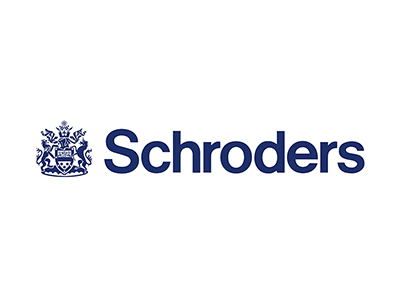Robin Parbrook and Alex Deane hunt for high quality smaller companies in Asia
The managers have built a high-conviction fund of companies with strong growth prospects
Schroders has plenty of resource with a large analyst team providing research ideas
This fund features on our Wealth Shortlist of funds chosen by our analysts for their long-term performance potential
How it fits in a portfolio
The Schroder Asian Discovery fund aims to grow capital over the long term by investing in companies across Asia (excluding Japan). The fund mainly invests in small and medium-sized companies which offer lots of growth potential but can involve more risk because they're at an earlier stage of their development.
Given its focus on smaller companies, this fund could work well alongside other funds investing in larger Asian companies as part of a globally diversified investment portfolio. The fund is managed to a ‘growth’ style so it could also be blended with more ‘value’ oriented investments.
Manager
Robin Parbrook is a veteran investor in Asia and has co-managed this fund since the start of 2021. He joined Schroders in 1990 and spent a large part of his investment career living in Asia. Whilst he no longer lives in the region, he still regularly visits to meet companies. Alongside this fund, he also manages others in Asia with a similar investment process and we feel he can comfortably handle these responsibilities.
Alex Deane became the fund’s co-manager at the same time as Parbrook. Before joining Schroders in 2015, he was an analyst at Rothschild & Co and Berenberg and has relevant analyst experience with global and Asian smaller companies. While we’re impressed with Deane as an investor so far, our key conviction in this fund currently lies with Parbrook given his length of experience.
There are thousands of companies in this part of the market, so the managers have the help of a team of analysts based across Asia. They help sift through the market and uncover what they believe to be the most promising opportunities.
Process
Smaller companies tend to be overlooked by investors. But many offer lots of growth potential, often because they're using new technologies or developing exciting, innovative products. The managers aim to spot those with promising potential before they're noticed by other investors.
The managers focus on the merits of individual companies and spend time understanding the quality, performance drivers and valuation of each, rather than looking at which country or sector might present the best opportunities. This means the fund can often look quite different to the benchmark.
When it comes to ‘quality’, companies should have a strong business model that can efficiently generate revenue and defend against competition. They should be financially robust and run by an experienced and aligned management team.
Companies in the fund fall into two buckets. The first is ‘compounders’, which includes those with the potential for long-term growth that can consistently invest back into their businesses over time. The second is ‘opportunistic'. These companies are often out of favour but have clear turnaround stories and exciting long-term potential. Typically, compounders make up most of the fund.
The fund is made up of around 50 companies. Geographically, India, Taiwan, and China are the biggest allocations and together account for just over 60% of the fund. It has less in China and more in India than the benchmark though. The managers also invest in Asian countries outside the benchmark, such as Vietnam, and can invest in other emerging markets such as Mexico. Remember that investing in emerging markets is a higher risk approach.
Sector wise, the managers find lots of opportunities in financials and consumer discretionary companies, although the fund is well diversified across sectors.
The fund can also use derivatives which can increase risk.
In the past year the managers invested in the Indian company Le Travenues, known for its Ixigo platform that allows customers to plan and book travel. They also invested in Hangcha, a Chinese manufacturer of forklifts that’s growing market share within the industry.
To make room in the fund for these new companies, the managers sold investments in PT Bank Negara, which is facing a challenging economic environment in its domestic Indonesian market, as well as Philippines home improvement retailer Wilcon Depot.
Culture
Schroders is a well-established asset manager with offices all over the world. It believes the importance of Asian and emerging markets in the global economy has increased significantly over the years and expects this to continue. We think Schroders is dedicated to investing in this part of the world and supporting the teams that invest there.
We believe incentivisation for Schroders’ fund managers and analysts is focused on longer-term performance potential and is therefore aligned with their investors. The Asian equities team is based across the UK and Asia, and this remains an important resource for the group’s range of Asian funds.
ESG Integration
Schroders has invested significantly in ESG (Environmental, Social and Governance) resources and tools in recent years. Investment teams have access to a variety of data sources that have been brought together into a proprietary platform called SustainEx, which allows them to quantify a company’s positive and negative contributions to society.
All Schroders funds were required to pass the firm’s inhouse ESG accreditation process by the end of 2020. All new funds must also be ESG accredited, and investment teams must reapply for accreditation on an ongoing basis.
This process is managed by the Sustainable Investment team. They sit on the investment desk and are objective in their approach. There is a set list of criteria that funds must meet to become accredited, and the process is substantial – no fund has ever gained accreditation on the first attempt. Fund managers are also expected to demonstrate improved levels of ESG integration over time.
The Schroders Sustainable Investment team acts as a focal point for ESG, proxy voting, and engagement. When it comes to proxy voting, Schroders has structured policies in place and is transparent on the reasons proposals have been voted against. On the ESG engagement side, the firm’s activities and outcomes are monitored, tracked and reported in its quarterly Sustainable Investment reports. There are also a range of ESG-related insight and thought leadership articles available on the firm’s website.
While the fund managers incorporate ESG factors into their analysis, this is not a sustainable fund.
Cost
The fund has an annual ongoing charge of 1.00%, but we’ve secured HL clients an ongoing saving of 0.24%. This means you’ll pay a net ongoing charge of 0.76%.
The fund discount is achieved through a loyalty bonus, which could be subject to tax if held outside of an ISA or SIPP. The HL platform fee of up to 0.45% per year also applies, unless the fund is held in a Junior ISA.
Performance
Parbrook has built an impressive track record during his career on a range of funds investing across Asia. Since Parbrook and Deane took over this fund’s management in January 2021, its grown 20.90%*. This is behind the MSCI AC Asia ex Japan Small Mid Cap index, which rose 35.94%, but ahead of the average fund in the IA Asia Pacific ex Japan sector, which returned 8.67%. This fund focuses on smaller and medium-sized companies so could experience more ups and downs than the broader sector, which is a mix of funds investing in large and small companies. As always, past performance is not a guide to future returns.
Over the past year, the fund grew 3.43%. This was behind both the benchmark and sector average, which returned 13.28% and 13.30% respectively. A lack of investments in Korea detracted from performance. It’s a country where lots of companies don’t meet the managers’ definition of ‘quality’, so they find few opportunities to invest, but it’s performed strongly in recent months.
Elsewhere, Chinese clothing manufacturer Shenzhou International and Voltronic Power Technology, a Taiwanese producer of power supplies, both lost value.
Some of the fund’s Indian businesses have contributed positively to performance, Including IT services provider Coforge and healthcare company Krishna Medical Sciences.
Despite the tougher time more recently, the managers are committed to their investment process and continue to only invest in companies that meet their assessment of quality. We believe they have the skill and experience to deliver strong long-term returns to investors, although there are no guarantees.
Annual percentage growth
31/07/2020 To 31/07/2021 | 31/07/2021 To 31/07/2022 | 31/07/2022 To 31/07/2023 | 31/07/2023 To 31/07/2024 | 31/07/2024 To 31/07/2025 | |
|---|---|---|---|---|---|
Schroder Asian Discovery | 38.83% | -8.56% | 5.31% | 9.72% | 3.43% |
MSCI AC Asia ex Japan Small Mid Cap | 29.04% | -4.74% | 4.96% | 8.51% | 13.28% |
IA Asia Pacific Excluding Japan | 18.22% | -5.56% | 0.13% | 4.49% | 13.30% |


